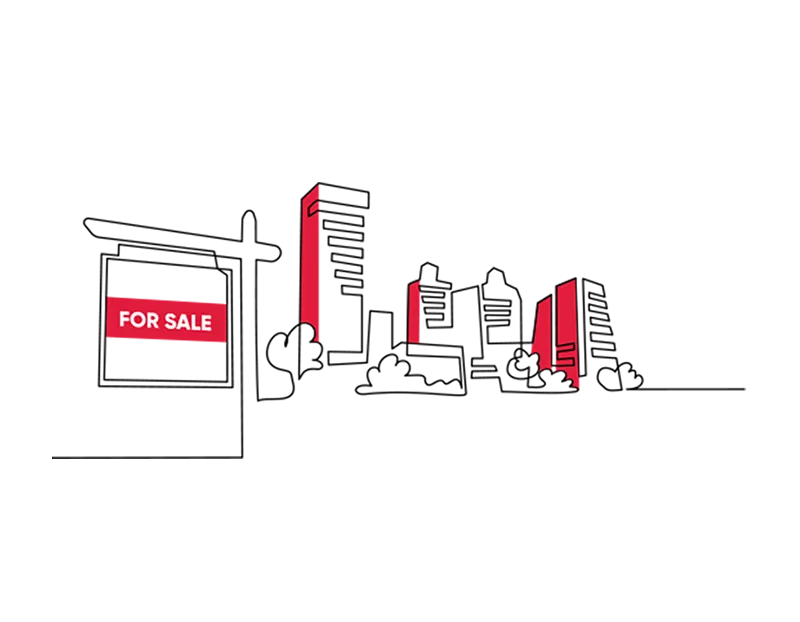Conditions
An FHL is a property that meets the three tests of availability, letting and pattern of occupation:
- Availability: The property must be available for commercial letting, as holiday accommodation, to the public generally for 210 days or more in the year
- Letting: The property must actually be let commercially, as holiday accommodation, to members of the public for at least 105 days or more in the year.
Periods of “longer-term occupation”, being continuous periods of more than 31 days during which the accommodation is occupied by the same person are excluded, and
- The pattern of occupation condition: The property must not be let for periods of longer-term occupation (as defined above) for more than 155 days during the relevant period
The pattern of lettings must satisfy these conditions for the tax year (accounting year for a company) or for the first or last 12 months of letting in years of commencement and cessation.
If you are unable to let your property for at least 105 days each year, there are 2 elections that may help you reach the occupancy threshold:
- the averaging election – if you have more than one property
- a period of grace election – if your property reaches the occupancy threshold in some years but not in others
Averaging election
If you let more than one property as an FHL, and one or more of these properties does not meet the letting condition of 105 days for that year, you can elect to apply the letting condition to the average rate of occupancy for all the properties you let as FHLs.
UK and EEA FHL properties are treated separately for purposes of this election.
Individuals can make an averaging election up to one year after 31 January following the end of the tax year.
Period of grace election
You must be able to show that you had a genuine intention to let the property in the year.
You can make an election where the property met the letting condition in the year before the first year you wish to make a period of grace election (either on its own or because of an averaging election).
If your property does not meet the letting condition in the next year, you can make a second period of grace election (as long as you made an election in the previous year).
If your property does not reach the threshold by the fourth year, after two consecutive period of grace elections, it will no longer qualify as an FHL
Advantages
If you let properties that qualify as FHLs:
- you can claim a number of Capital Gains Tax (CGT) reliefs that apply to traders (Business Asset Rollover Relief, Business Asset Disposal Relief, relief for gifts of business assets and relief for losses on loans to traders). See below. Companies may also be able to claim Substantial Shareholder Exemption (SSE);
- you are entitled to plant and machinery capital allowances for items such as furniture, equipment and fixtures; and
- the profits count as earnings for pension purposes.
Capital gains tax reliefs
Business Asset Rollover relief
Properties used for FHL qualify as business assets for rollover relief.
This allows tax on the gain to be delayed where all or part of the proceeds are used to buy new qualifying assets used in your business.
You must buy the new assets within 3 years of selling or disposing of the old ones (or up to one year before)
Your business must be trading when you sell the old assets and buy the new ones
You must use the old and new assets in your business
Business Asset Rollover Relief means you will not pay any tax until you sell the new asset. You may then need to pay tax on the gain from the original asset.
Business Asset Disposal relief
Where all or a substantial part of your business is disposed of, Business Asset Disposal relief
may apply if the conditions were met in the 24 months prior to disposal.
This relief will allow up to £1 million of gains to be taxed at 10%, rather than 18% or 28%.
HMRC is unlikely to agree to a claim for Business Asset Disposal relief on the disposal of a single property out of a business that includes several FHL properties.
Gifts of Business Assets (Holdover relief)
You may be able to claim Gift Hold-Over Relief when you give away business assets or sell them for less than they are worth to help the buyer (who might be a relative).
This means that CGT is not payable at the time the property is gifted
The CGT is deferred until the new owner disposes of the property.
Losses on loans to traders
If you make a loan to a trader, you may be able to claim an allowable loss if the loan cannot be repaid
Loan interest restriction on residential properties
Unlike for “buy to let” properties, there is no loan interest restriction for higher rate income tax payers who pay mortgage interest on their FHLs.
Joint ownership
Normally where assets are held jointly by married couples / civil partners the income is treated as split equally, unless the couple have elected to have the income split according to the underlying beneficial entitlement.
This is not the case with FHLs as they are specifically excluded from this treatment.
While this can provide tax planning opportunities, it is advisable to be able to ensure that the basis on which profits have been split can be justified for example by reference to the work done in relation to the letting and / or the underlying beneficial ownership.
VAT – Beware
If you have another self-employed business and are a VAT-registered person, you will need to charge VAT on your FHL income.
This is because the letting of all holiday accommodation is standard rated for VAT purposes, whether or not it qualifies as an FHL.
As HMRC treats the registered person as the same, this also means that a requirement to register for VAT may be triggered earlier than expected; as the landlord will be required to register for VAT when the total value of fees charged for holiday lettings plus the value of other VATable sales made exceeds the registration requirement – normally £85,000 in any 12-month period.
Inheritance Tax
FHLs will in general not qualify for business property relief (a valuable inheritance tax relief, further information on which can be found here), because the holding of land is viewed as an investment rather than a trade. However, there will be some cases in which significant additional services are provided to guests to the extent that it may be viewed as a trading business (similar to a B&B or a hotel as opposed to a standard FHL). If HMRC accepts that an FHL was a trading business as a result of the additional services provided, that FHL would qualify for business property relief.
Business rates
Some FHLs are subject to business rates, instead of council tax.
An FHL will be subject to business rates if both:
It is available to let for short periods for at least 140 days in total over the current and previous tax years; and
It was actually let for at least 70 days in the last 12 months.
If an FHL is subject to business rates, it will often qualify for low business rates tax because of Small Business Rates Relief.
Please note that differences exist between the rating rules for holiday let properties int eh different countries of the UK. The above rules relate to England.
Planning restrictions
The planning regulations vary across the country.
Whether the use of a dwelling house for commercial letting as an FHL will amount to a material change of use (which will require planning permission) will be a question of fact and degree in each case. Local authorities tend to consider factors such as:
- the number and frequency of guests;
- the noise and transport impacts;
- how much of the property is let out and how often;
- whether the guests use the property in an uncharacteristic way e.g. for frequent, late night parties.
In London, planning permission is needed if the property is let for short-term lets for 90 days or more in a calendar year.
Where the property is held as leasehold, the lease agreement may prohibit short-term sub-letting or may require the landlord’s consent.
You should also check the terms of your mortgage to ensure that you can grant short -term lets without the lender’s consent.
Private use
If your property is only used as an FHL and is closed for part of the year, say because there are no customers, you can deduct all the expenses for the whole year, provided there is no private use.
If you let only part of the property as an FHL, or where you use the property privately for part of the year, you will need to apportion your receipts and expenses on a reasonable basis. Capital allowances will also need to be restricted accordingly.
If the property is within a company, a benefit in kind could arise which will need to be reported to HMRC under the P11d regime.








